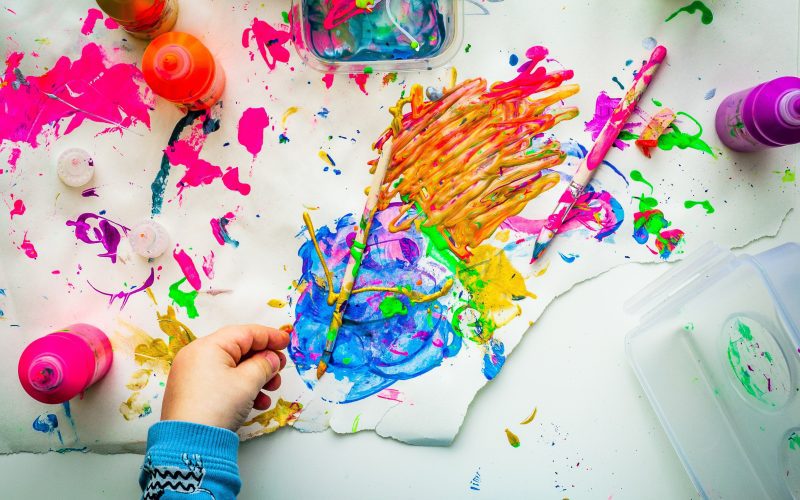Introduction
Do you believe that creativity is essential to achieving success in the 21st century? If so, then it’s time we take a closer look at arts education and its impact on preparing students for thriving careers in the creative industries. As technology continues to reshape our world, the demand for people with creative problem-solving skills is higher than ever before. In this blog post, we’ll explore how arts education can unlock a student’s potential and provide them with a competitive edge in tomorrow’s job market. So buckle up, because it’s time to get creative!
What is arts education?
Creative industries are those that focus on the production and distribution of creative goods and services, including advertising, architecture, art and design, fashion, film and video, music, performing arts, publishing, and software and games development. The sector is growing rapidly around the world, driven by technological innovation and the increasing demand for new content.
In order to prepare students for careers in the creative industries, it is essential that they receive a comprehensive education in the arts. Arts education covers a wide range of disciplines including visual arts, performing arts, art history, and film studies. Through arts education students develop critical thinking skills and learn to express themselves creatively. They also gain an understanding of the role of creativity in society and the economy.
A strong arts education program will provide students with the foundation they need to pursue careers in the creative industries. It will nurture their creativity, allowing them to develop their own unique style and voice. It will also give them the opportunity to experiment with different mediums and techniques. And finally, it will instill in them a love for learning that will stay with them throughout their lives.
The benefits of arts education
It is well documented that arts education has many benefits for students, including developing critical thinking and problem solving skills, improving academic achievement, fostering social and emotional development, and providing a creative outlet. However, arts education also has specific benefits for students who are interested in pursuing careers in the creative industries.
Arts education helps students develop the creative thinking skills that are essential for success in the creative industries. The ability to think outside the box, to come up with original ideas, and to solve problems in new ways is highly valued in the creative industries. Arts education gives students the opportunity to practice these skills through activities such as brainstorming, working on group projects, and experimenting with different mediums.
In addition, arts education can provide students with valuable experience working with clients or customers, as well as managing deadlines and budgets. Many careers in the creative industries involve working with clients or customers to create custom products or services. This can be a challenge, as it requires excellent communication and customer service skills. Arts education gives students the opportunity to develop these skills by working on projects with real-world clients.
Finally, arts education can help students build a strong portfolio of work to showcase their talents to potential employers. A strong portfolio is essential for any student seeking a job in the creative industries. It can be used to demonstrate creativity, technical skill, and experience working on client-based projects.
How arts education prepares students for careers in the creative industries
A career in the creative industries requires both creativity and technical skills. Arts education can provide students with the opportunity to develop both of these skills.
Some careers in the creative industries, such as graphic design or web design, require a strong understanding of technology. Arts education can provide students with the opportunity to learn about different software programs and how to use them.
Other careers in the creative industries, such as writing or filmmaking, require more creative thinking. Arts education can help students develop their imagination and critical thinking skills.
Regardless of the specific career path, arts education can help students learn how to communicate their ideas clearly and effectively. This is an important skill in any career but is especially important in the creative industries.
Arts education and the future of the creative industries
Arts education has long been seen as an important part of a well-rounded education. However, with the rise of the creative industries, it is taking on an even greater importance. The creative industries are one of the fastest growing sectors of the economy and are expected to continue to grow in the coming years. As such, arts education is seen as a key way to prepare students for future careers in these industries.
There are a number of reasons why arts education is seen as so important for future careers in the creative industries. First, the arts help to develop creativity and critical thinking skills. These skills are essential for success in any field, but they are particularly important in the creative industries. Second, the arts can help students to develop their own unique voice and style. This is again essential for success in any field, but especially in the creative industries where originality is highly valued. Third, arts education can provide students with practical skills that are relevant to the creative industries. For example, many courses offer training in design software or photography.
fourth, and finally, arts education can simply give students a love and appreciation for the arts. This is important not only for those who wish to pursue careers in the arts, but also for those who will be working in other fields where creativity and imagination are valued.
So if you’re interested in a career in the creative industries, make sure to get some good arts education!
Conclusion
Arts education plays an important role in helping students develop the creative and critical thinking skills necessary to succeed in today’s ever-changing economy. By exposing them to a wide variety of art forms and teaching them how to analyze, interpret, create and evaluate their own work, they can gain valuable insights into the world around them that will serve them well throughout their lives. This knowledge can open up doors for those interested in pursuing careers in the creative industries or any other field requiring creativity and problem-solving abilities.












